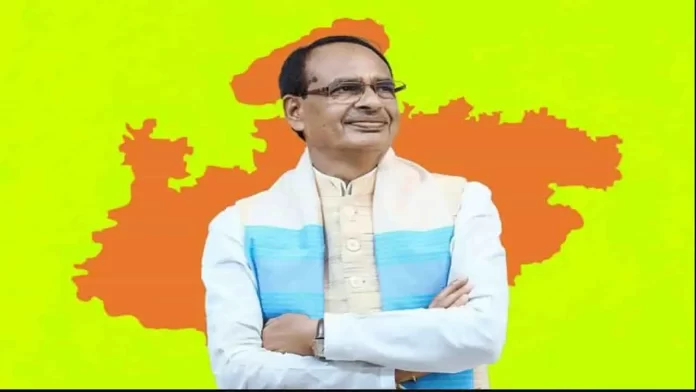The BJP’s win in the state can be attributed to its various schemes targeting women and a well-planned strategy to infuse cash into their bank accounts
By Neeraj Mishra
There will be reams of analysis, head scratching and meetings as to why the Congress lost Madhya Pradesh in the recent assembly elections. There will be many who will wonder how Chief Minister Shivraj Singh Chouhan and Axis got it so right—160 plus seats. There will also be scores of ground teams and reporters who will be left wondering if they have lost the pulse of the people. There is only one answer to it all—data. Only the BJP could access it, knew its uses and played its cards well to mine it with the right incentive.
The state government had transferred cash directly into bank accounts of women through its “Ladli Behna” schemes. The party noted their account numbers and kept track of activity in them. Women have been encouraged to hold separate accounts. There are 2.73 crore women voters in Madhya Pradesh, and out of these, nearly 75 lakh new voters. These are the growing girls who have benefited most through the “Ladli Behna” schemes. And the BJP trapped the young and incentivised through the infusion of cash.
As the elections drew near, the chief minister targeted married women as well by transferring Rs 3,000 twice into their accounts on Rakhi and Karva Chauth. The account numbers and their activity were followed in each constituency. Bank accounts are not just numbers, they are held by real women who were met by BJP representatives and lectured on how the government was looking after them and a loss would mean the scheme would be stopped by Congress leader Kamal Nath. This included Muslim women, of course. A total of 1.2 crore women have received direct cash transfer.
The BJP strategists then drew up their lists of candidates and sent senior leaders from Parliament to oversee activity in each zone. They were carefully picked from each major area of the state. Union Minister Narendra Singh Tomar for North, Union Minister Prahlad Singh Patel for Bundelkhand, Minister of State for Rural Development Faggan Singh Kulaste for tribal Mandla region and Kailash Vijayvargiya, BJP general secretary, for Indore-Malwa.
It is a given that the BJP has a stranglehold over at least 80 seats in the state which they put in A+ category. Then there were 30 A category seats which were to be managed by these stalwarts, where the likelihood of victory was slightly thinner, but still there. It all came to about 110 seats, which is what the anti-incumbency and reporters perceived.
Now the data came into play. Chouhan was told by his intelligence and independent sources that the BJP would get between 100 and 110 seats. That’s what 28 of the 30 surveys also said. But he knew something they didn’t.
He was banking heavily on women who would go out and vote and add another 40 seats to his tally. So he expected about 145-150. He told his officials as well. So, all this was well planned and not a simple hit and miss election jumla.
MP returned 70% polling and if that holds true for women as well (so far, male-female vote percentages have not been calculated), then 70% of 2.75 crore would be about 1.9 crore votes. As the votes received by the BJP have gone up to 48%, it is likely that more women voted than men. If 1.2 crore women have received direct cash benefits, then they are most likely to have gone out to vote and even defied their men folk to vote for Mama who distributes cash.
The few extra seats that the BJP got can be attributed to bad candidate selection, thanks to senior Congress leader Digvijaya Singh who pushed in all his old lot from the 1990s who are no longer relevant. Only the core Congress seats have survived this data-backed onslaught by the BJP. The Congress will have to find ways to attract women back into its fold and it is unlikely that either Kamal Nath or Digvijaya Singh can do that.


